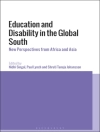In the decades since the collapse of socialism in eastern Europe, time has been a central resource under negotiation. Focusing on a local community that was considered a ‘model’ in the socialist period, the author explores a variety of state-sponsored and unofficial pasts – history, folklore, and tradition – and shows how they ‘fit’ together in everyday life. During the socialist period, the past was a central dimension of local politics and village identity. Post-socialist development has demanded a revaluation of temporality – as well as public and private space. This has led to fundamental changes in social life and political relations, reduced local resources, threatened village identity and transformed political activity through the emergence of new political elites.
While the full implications of this process are still being played out, this study underlines some of the fundamental processes prevalent across eastern Europe that help explain widespread ambiguity vis-B-vis post-socialist reform.
Jadual kandungan
Acknowledgements
Abbreviations
Glossary
Chapter 1. Introduction: Politics and the past
- Local-Centre Relations in Socialist Bulgaria
- Socialist Temporality
- The Importance of the Past: History, Tradition and Folklore
- Fieldwork and the Issue of Representation
Chapter 2. A ‘Model Village’
- The ‘Model Village’
- Event Administrative Relations
- Class Relations
- Morality
- Identity
- Conclusion
HISTORY: A BRIEF INTRODUCTION TO CHAPTERS 3 AND 4
Chapter 3. Socialist History, Politics and Morality
- Characterising History
- Politics and History
- A Moral History
Chapter 4. Contesting History
- Different Histories: Political Pluralism
- Alliances and Oppositions
TRADITION: A BRIEF INTRODUCTION TO CHAPTERS 5 AND 6
Chapter 5. The Character of Traditions
- Traditional Funeral Practices
- Death and Relations to Nature
- Collective Celebrations of Tradition
Chapter 6. Tradition and History: Contrasting Constructions of the Past
- A Good Communist Village: A Bad Traditional Village
- Creating Local Distinctions: Traditional Practices as a Way of Opposing the State
FOLKLORE: A BRIEF INTRODUCTION TO CHAPTERS 7 AND 8
Chapter 7. Defining Folklore
- Survakani: both a Traditional and Folkloric Custom
- Folklore as a State-determined Activity
Chapter 8. Folklore in a New Bulgarian Village
- Education, Bulgarian Culture and Folklore
- The Village Vocal Group
- Talpa – a ‘new Bulgarian village’
Chapter 9. A New Model for the Village
- A Model Village in a Model District
- Decentralisation – the Tragic Consequences
- A Re-evalutaion of the Past
- Re-negotiating Relations with the Centre
Appendix I: 9 September 1987
Appendix II: Eulogy
References
Index
Mengenai Pengarang
Deema Kaneff is reader in Social Anthropology at the Centre for Russian, European and Eurasian Studies at the University of Birmighnam.












